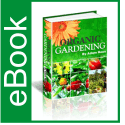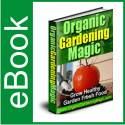Organic Non-Hybrid, Non-GMO Seeds
Organic Non-Hybrid, Non-GMO Seeds
Article by Joel Lemieux
In a disaster scenario, where there are food shortages, survival seeds could be more precious than gold. It will mean the difference between life and death for some. When buying seeds for a survival garden or homestead, there are certain considerations that one should be aware of before purchasing.Buy Heirloom, Open Pollinated and Non-GMO (non genetically modified)
The health conscious family today is tired of the nutritionally poor produce found at the large supermarkets today. Everyone can remember growing up and visiting their dear grandmother during the summer and lookimg on intently as she would slice a huge tomato and serve it on a dish as is. We can all recall the luscious and vibrant color of each slice.
That was not just our fond memory of the good old days increasing over time. The tomato did taste better then. The tomato did have a better color and consistency as compared to the produce being grown and sold today in our markets.
One of the reasons the taste was superior was that the seeds grandma used were not hybrid seeds. The seeds she used were probably open polinated in nature or what we call non-hybrid seeds.
A hybrid seed is created by artificially cross pollinated plants. The first genetically engineered seeds were first developed and used for the growing of maize in the late 1920’s. These engineered seeds are bred and produced to improve the yield, resist disease and provide a uniformity characteristic of such altered produce. They were truly non hybrid or non gmo varieties
Not being open polinated, the resulting seeds from these plants are useless and cannot be planted the following season. Therefore the producer or farmer is forced to purchase a new set of neutered seeds each and every year.
A non hybrid seed is different in that it has not been genetically altered. The resulting produce of such a seed is more nutrient rich, carries an enhanced flavor and most importantly – yields a seed that can be planted next season to provide another harvest.
This cycle of production is allowed to continue indefinitely which is another dramatic distinction of the non-hybrid, non-gmo seed.
When buying seeds for a survival garden, or homestead, make sure that the seeds purchased are open pollinated, heirloom and non hybrid seeds. These have not been genetically modified and will still have the capacity to produce viable seeds for their crops.How Many Seeds are NeededDo research to find how many crops are produced by each plant and take into account how many members of the family will be eating the crops. Typically, a person does not need to use an entire packet unless they are on a farm.Longevity of SeedsSeeds are alive, and will expire. If they are not stored properly, there longevity is depleted. There are many survival seed websites that offer seeds that only last 1-2 years. When preparing to buy seeds, find out from the seed distributor how old the seeds are. Furthermore, do some research and find out which seeds last longer than others and what the best ways are to store the seeds. Typically, larger seeds such as corn, beans and melon seeds last longer than the smaller seeds.
About the Author
Experience “High Yield” Organic Gardening

 October 16, 2011
October 16, 2011 







